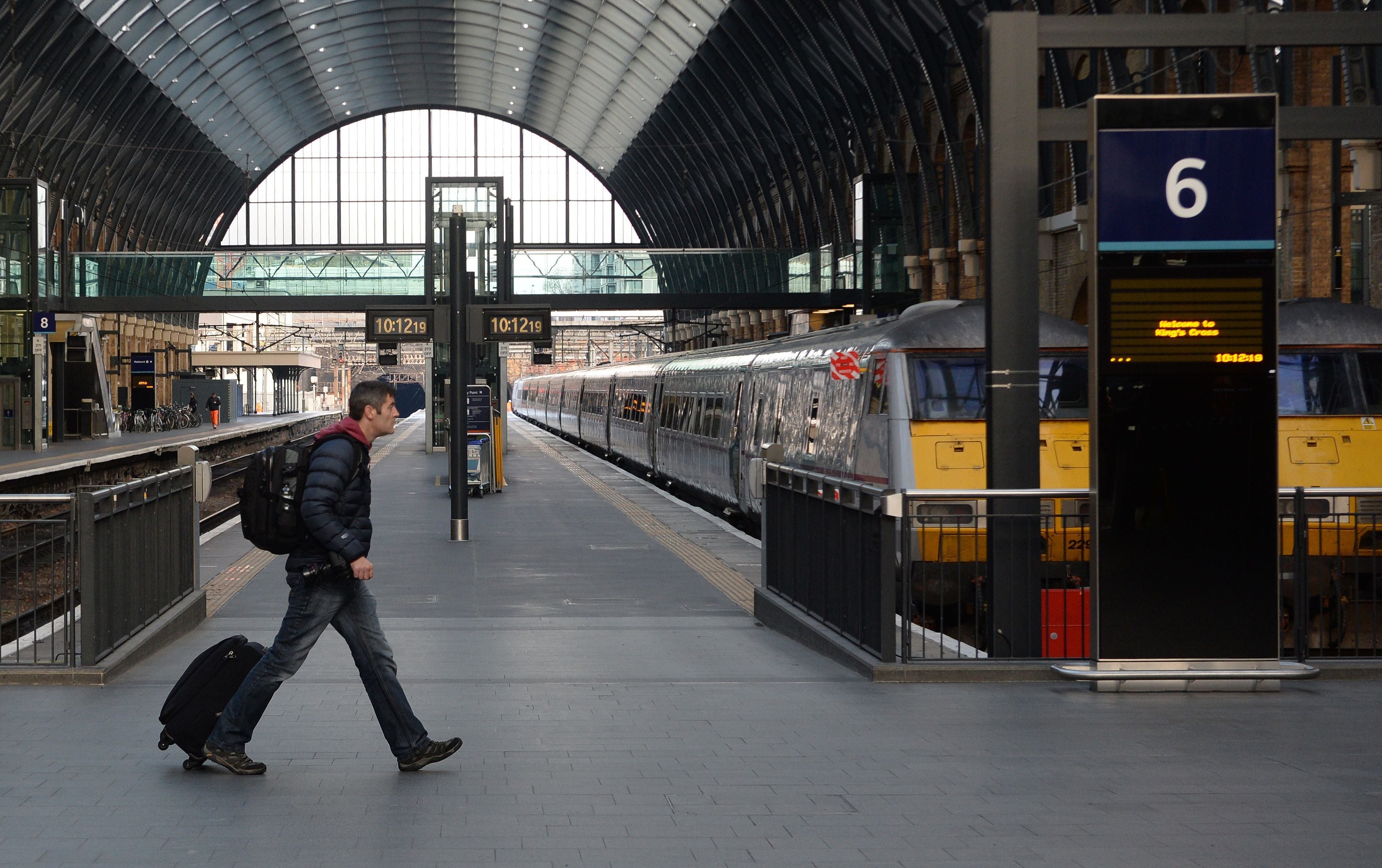Rail and Tube strikes to cause massive disruption to services next week
The Government and Labour have clashed over the growing dispute about jobs, pay and conditions.

Your support helps us to tell the story
From reproductive rights to climate change to Big Tech, The Independent is on the ground when the story is developing. Whether it's investigating the financials of Elon Musk's pro-Trump PAC or producing our latest documentary, 'The A Word', which shines a light on the American women fighting for reproductive rights, we know how important it is to parse out the facts from the messaging.
At such a critical moment in US history, we need reporters on the ground. Your donation allows us to keep sending journalists to speak to both sides of the story.
The Independent is trusted by Americans across the entire political spectrum. And unlike many other quality news outlets, we choose not to lock Americans out of our reporting and analysis with paywalls. We believe quality journalism should be available to everyone, paid for by those who can afford it.
Your support makes all the difference.The scale of disruption travellers face next week during rail and Tube strikes has been revealed as the political heat over the dispute was turned up, with angry clashes between the Government and Labour.
Half of Britain’s rail lines will be closed during strikes on June 21, 23 and 25 by the Rail, Maritime and Transport union (RMT), while Transport for London (TfL) “strongly encouraged” people not to travel on London Underground on June 21 because of a 24-hour walkout by the RMT and Unite.
The disputes have flared over pay, jobs and conditions, with the Transport Salaried Staffs Association (TSSA) announcing more strike ballots at rail companies on Wednesday, increasing the threat of a prolonged summer of disruption.
Network Rail (NR) said no passenger services will serve locations such as Penzance in Cornwall, Bournemouth in Dorset, Swansea in South Wales, Holyhead in North Wales, Chester in Cheshire and Blackpool, Lancashire.
There will also be no passenger trains running north from Glasgow or Edinburgh.
Open lines include the West Coast Main Line from London to Scotland via locations such as Birmingham and Manchester.
The number of passenger services on those days is expected to be limited to around 4,500, compared with 20,000 normally.
Lines will only be open between 7.30am and 6.30pm, meaning services will start later and finish earlier than usual.
Here are some examples of last trains from London on strike days:– To Edinburgh: 2pm– To Leeds: 3.05pm– To Birmingham: 3.43pm– To Cardiff: 4.27pm– To Brighton: 5.50pm
Passengers “who must travel” are urged to “plan ahead” to ensure they can complete their journeys within this window, Network Rail said.
Last services from London to Scotland will leave in the early afternoon.
TfL said it expects severe disruption or no service on all Tube lines on Tuesday, with no services before 8am on Wednesday.
There will also be a reduced service on London Overground and the new Elizabeth line on the three days of RMT strikes.
Steve Montgomery, who chairs industry body the Rail Delivery Group, said: “These strikes will affect the millions of people who use the train each day, including key workers, students with exams, those who cannot work from home, holidaymakers and those attending important business and leisure events.
“Working with Network Rail, our plan is to keep as many services running as possible, but significant disruption will be inevitable and some parts of the network will not have a service, so passengers should plan their journeys carefully and check their train times.”
Only around 12,000-14,000 services will be able to run on the days after the strikes.
This is because signallers and control staff will not work overnight shifts that begin on the strike dates, so trains will leave depots up to four hours later than normal.
NR chief executive Andrew Haines said the strikes have been timed to cause “maximum disruption”.
Train operators urged passengers only to travel by train if necessary, or not at all on strike days.
Mr Haines said talks had been held but had not progressed as far as he had hoped, adding: “So we must prepare for a needless national rail strike and the damaging impact it will have.”
RMT general secretary Mick Lynch wrote to Transport Secretary Grant Shapps and Chancellor Rishi Sunak calling for face-to-face talks, saying it was clear the Treasury was “calling the shots” and not allowing rail employers to reach a negotiated settlement. NR denied the union’s claim.
Labour leader Sir Keir Starmer told Boris Johnson at Prime Minister’s Questions that he wanted the strikes to go ahead so he can “feed on the division”, adding that he opposed the industrial action.
Mr Johnson claimed a union official had said he would not negotiate with the Government.
Mr Shapps said the strikes were “entirely pointless” as a pay freeze was coming to an end.
Shadow transport secretary Louise Haigh accused the Government of being a “bunch of arsonists”, fuelling the dispute.
After a lengthy debate in the Commons, a Government motion condemning the strikes and calling for unions to continue discussions was approved by 293 votes to 15, a majority of 278.
Thirteen Labour MPs voted against, as well as former party leader Jeremy Corbyn and Green Party MP Caroline Lucas.